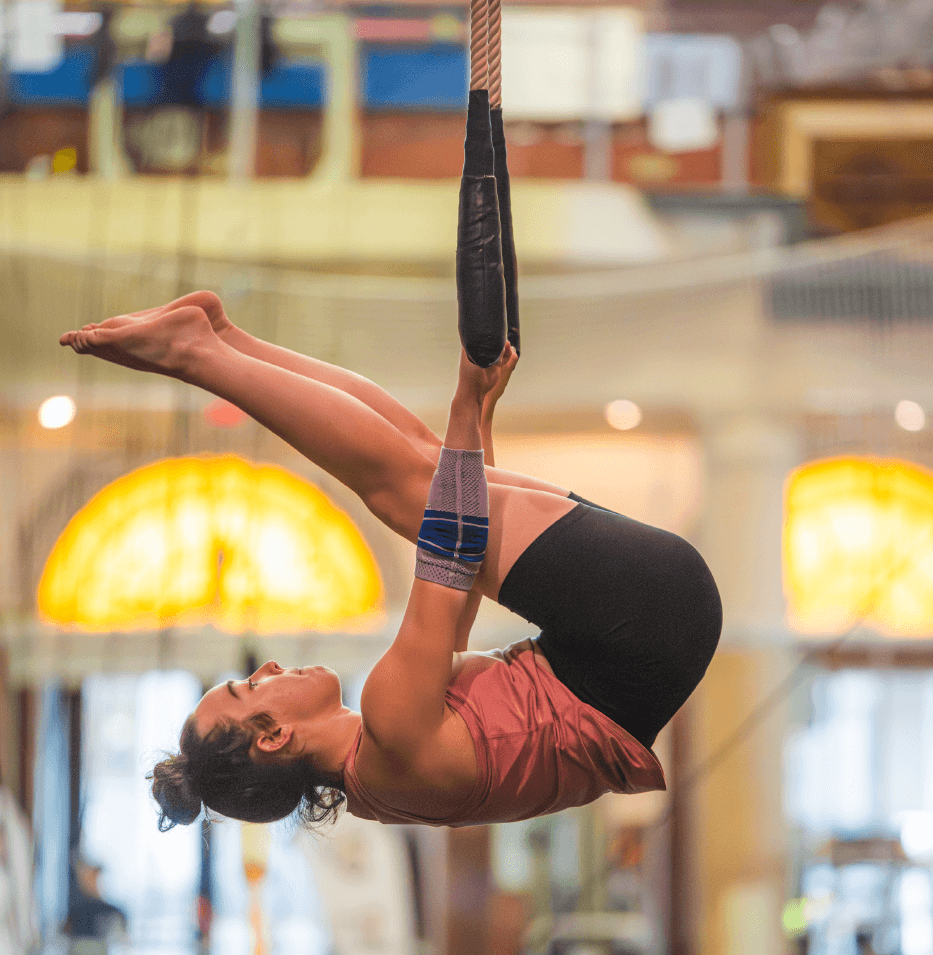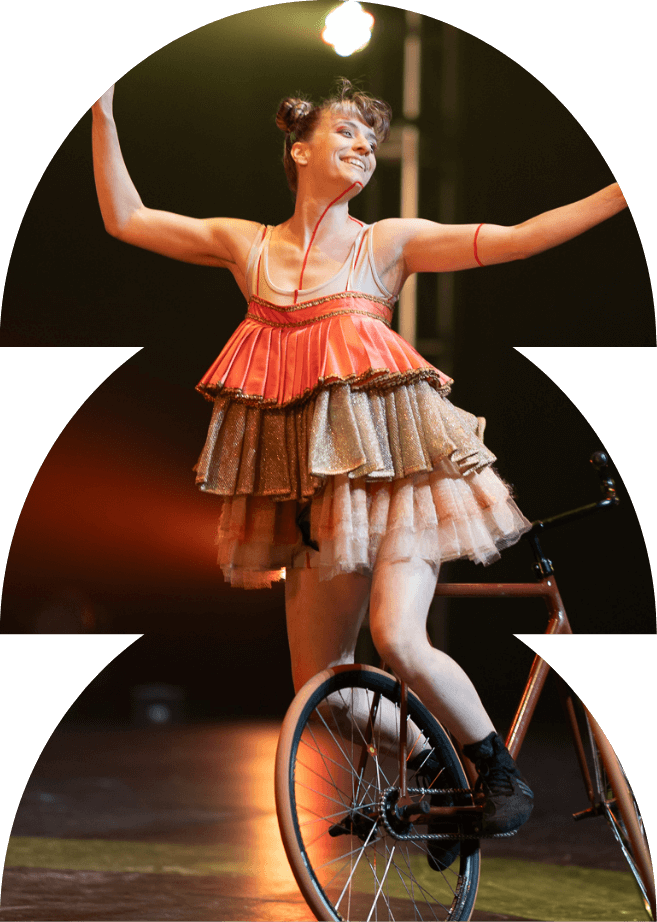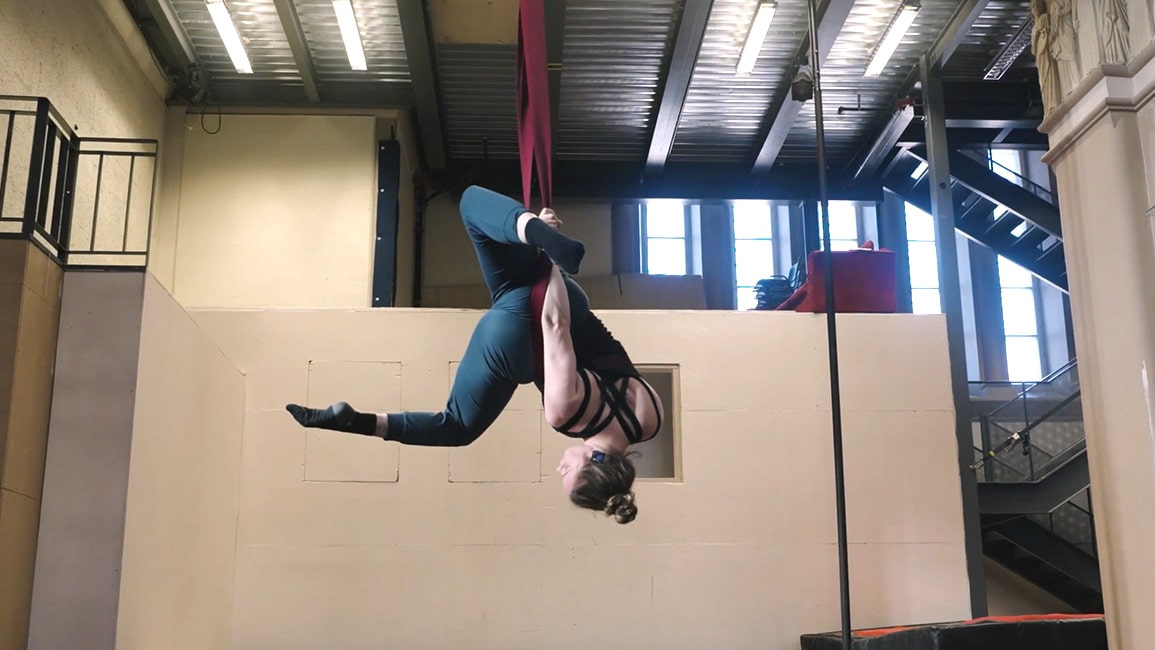
Preparatory program
Get ready for the DEC-DEE in Circus Arts
This preparatory program is designed for:
- Applicants whose current abilities don’t yet meet the requirements for the Higher Education program in the circus arts,
- Individuals invited to join the program to prepare for higher education.
This one-year program aims to strengthen your physical and artistic foundations for the circus practice while helping you clarify your discipline of choice. You’ll work on core techniques like acrobatics, handstands, flexibility and physical conditioning. You’ll also be introduced to dance and theatre and continue to develop technical and creative skills in your primary discipline, all with the goal of preparing you for the Higher Education program auditions.
Only applicants who have completed the audition process for the Higher Education program and whose level is not yet aligned with that of the rest of the cohort may be invited to take part in the preparatory year, following a conversation with the jury.


